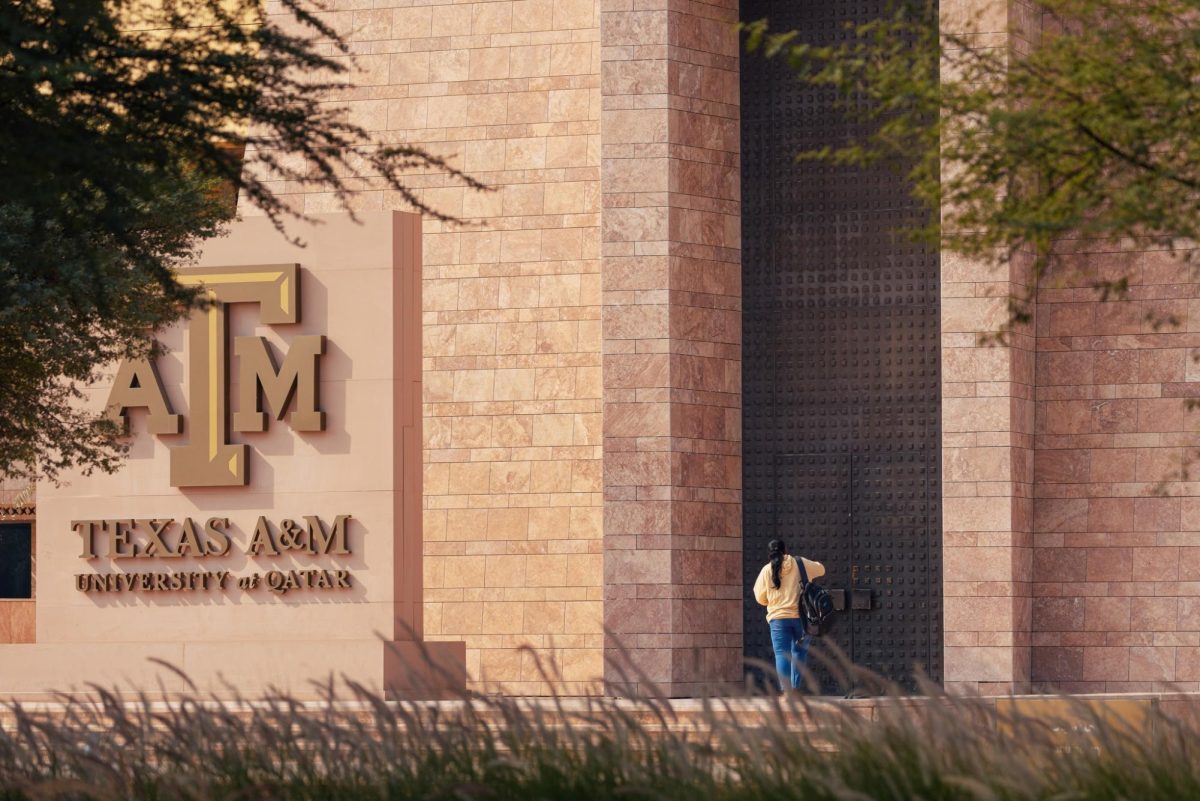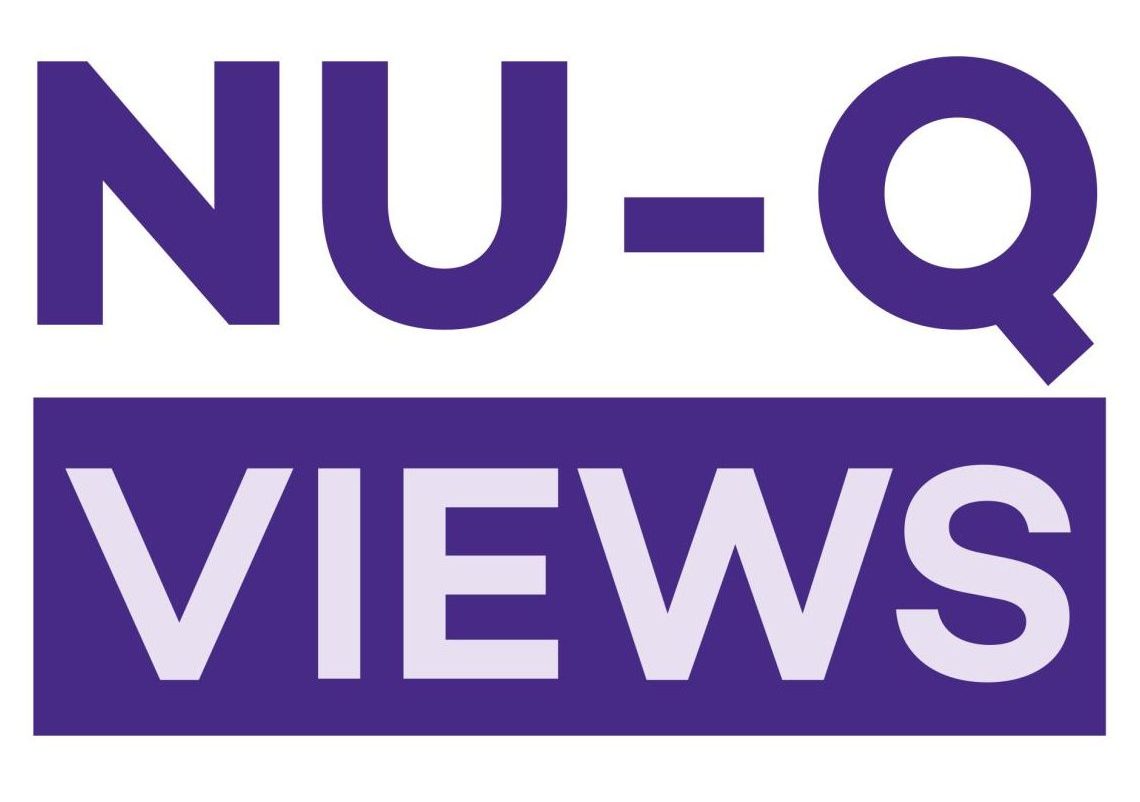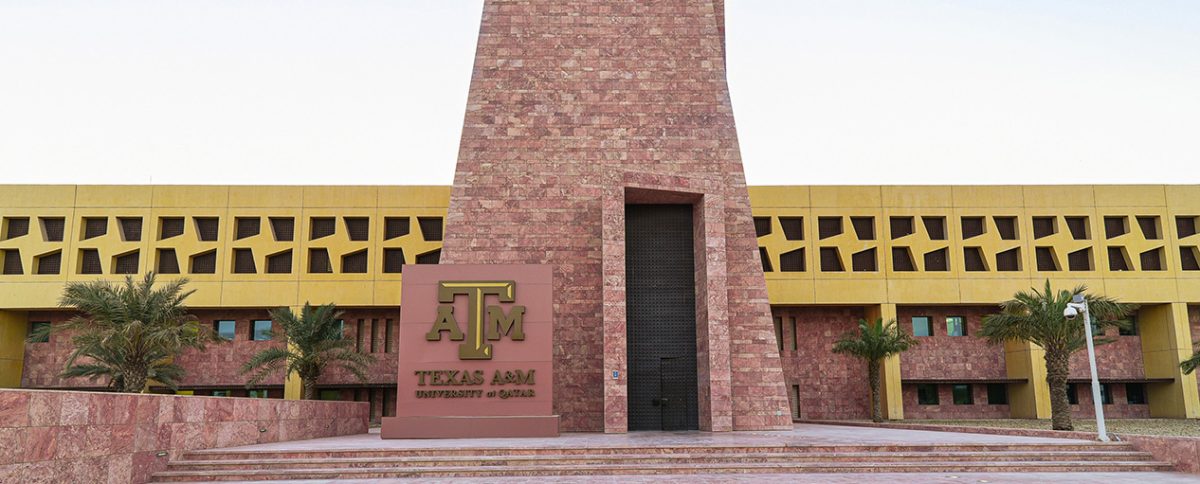The impending closure of Texas A&M University’s Qatar campus in 2028 was not influenced by external criticism of ongoing research activities, President Mark Welsh said on Feb. 11.
Welsh addressed the TAMU-Q community Sunday following the University Board of Regents’ vote Thursday to end its 20-year presence in Qatar, citing “heightened instability in the Middle East.”
Speaking to a live audience at TAMU-Q, Welsh emphasized that the decision aimed to prioritize the university’s focus on serving the state of Texas while maintaining the institution’s commitment to international research collaborations.
Welsh, who became Texas A&M University president in November after serving four months as interim president, began his remarks by expressing regret about the closure. “This is not how I envisioned introducing myself to you,” he said. “So, for that, I apologize.”
Unveiling plans for a transition team to facilitate a smooth shutdown process for faculty and staff, Welsh said, “We fully intend to assist you in whatever your desire is: transfer, re-employment, helping to find a new job, or coming back to [the home] campus at Texas A&M.”
Vice Provost for Faculty Affairs Nagamangala Anand said the goal of the transition team “is to make this transition as smooth and attractive as possible by prioritizing the well-being of our employees and the successful graduation of all our students.” The team comprises human resources staff from TAMU-Q and the Texas main campus to ensure employment and benefits continuity.
The road ahead for TAMU-Q and the Qatar Aggies
Welsh acknowledged that while the transition timeline is still uncertain, the effort will get underway immediately and he highlighted the need for coordination with the Qatar Foundation.
One of the most pressing concerns that has emerged since the shutdown was announced is the process for conferring degrees to students currently enrolled at the Qatar campus. TAMU-Q Dean César Malavé assured students that degrees would continue to be conferred from the home campus until the conclusion of all operations in Qatar in 2028.
Alan Sams, provost and executive vice president of Texas A&M, echoed Welsh’s sentiments, emphasizing the need for careful planning to address funding and personnel concerns while ensuring TAMU-Q students’ successful completion of their degrees.
Addressing worries about how the closure could impact prospective students, Welsh said the fate of 2028 admissions remains a “very, very high priority” question as yet to be determined and that further discussions are still needed to decide if admitting new TAMU-Q students through 2028 is viable while ensuring that they can complete their degrees on schedule.
“We’re looking at options, maybe a reduced size class in the freshman classes next year,” Welsh said. “The question is, can we teach that class by 2028?”

Reflecting on the impact of the closure on the alumni community, an alumnus of TAMU-Q who preferred to remain anonymous predicted the gradual “eradication of the Qatar campus alumni community” due to its physical distance from the main campus and lamented the loss of the “Aggies’ spirit.”
They conveyed deep emotional ties to TAMU-Q as their initial home in Qatar, expressing astonishment at the sudden closure announcement. “TAMU-Q is my home here in Qatar as an international graduate, and the sense of losing that home and feeling disconnected is palpable,” the alum said.
A TAMU-Q professor declined to comment when contacted by The Daily Q, saying no one had a concrete idea of what was going on.
Disinformation key in University’s decision: QF
Following the official announcement of the closure, Qatar Foundation, which hosts the American campuses in Education City including TAMU-Q, expressed disappointment that disinformation had played a decisive role in Texas A&M’s decision.
According to a statement QF issued on Thursday, the decision represents a troubling intrusion of political factors into academic affairs, jeopardizing “the significant positive impact that this partnership has brought for both Qatar and the U.S.”
Concerns were raised by the Institute for the Study of Global Antisemitism and Policy regarding Texas A&M University’s partnership with the Qatar Foundation, alleging Qatar’s significant ownership in weapons-development rights and nuclear engineering research at Texas A&M could pose a threat to U.S. national security.
STATEMENT FROM QATAR FOUNDATION
The decision of Texas A&M University’s Board of Regents to end its partnership with Qatar Foundation (QF) has been influenced by a disinformation campaign aimed at harming the interests of QF. It is disturbing that this disinformation has become…
— Qatar Foundation (@QF) February 9, 2024
In comments to The Daily Q, Marc Owen Jones, associate professor of Middle East Studies at Hamad bin Khalifa University in Education City, emphasized the significance of disinformation in influencing decisions, citing a particular narrative alleging Qatar’s involvement in acquiring nuclear secrets as “totally bogus.”
Owen Jones noted that QF has been a regular “cross-site of Gulf/US right-wing coordinated disinformation campaigns,” including the Saudi and UAE-led blockade of Qatar in 2017. He suggested political motives lie behind the TAMU-Q closure decision due to the university’s susceptibility to right-wing narratives prevalent in its conservative environment.
Owen Jones also pointed out a surge in disinformation targeting Qatar since the beginning of the Israel-Hamas war on Oct. 7, originating from various sources including the Israeli government and right-wing think tanks including the Philadelphia-based Middle East Forum.
Although there is more pressure on right-wing and pro-Israel lobbies, most of the reporting on Texas A&M’s recent decision to close its Qatar campus in four years cites a report by ISGAP – a pro -Israel think tank, which launched a disinformation campaign about nuclear secrets pic.twitter.com/8i7wvoinZs
— Marc Owen Jones (@marcowenjones) February 9, 2024
These efforts aim to undermine Qatar’s mediation efforts in the war and perpetuate negative perceptions, Owen Jones said, particularly in light of Qatar’s potential role in regional peace negotiations.
“They don’t want Qatar to get kudos for mediation,” he added.




